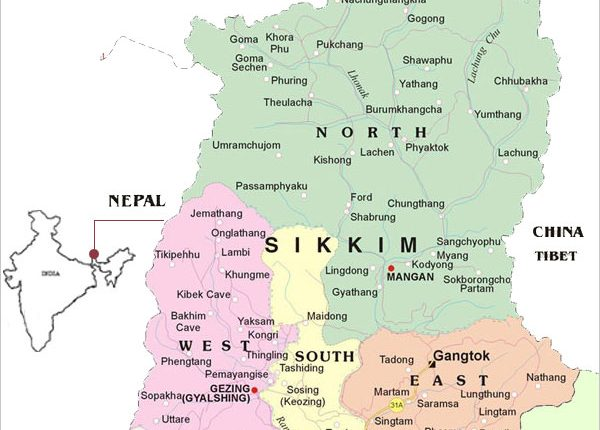How Sikkim became part of India in 1975?
- TheSoulGuide

- Sep 11, 2022
- 3 min read
Do you know that Sikkim became part of India quiet late after the Independence. Just after the British left it was not part of India. Let's know about it.
Sikkim is the North-eastern state of India and shares its boundaries with China, Nepal and Bhutan. It lies close to the Chicken neck of India that is the corridor between Bhutan and Bangladesh. It is one of the smallest states of India and was founded in 17th century by Namgyal Dynasty.
It is one of the most beautiful state of India known for a great biodiversity and third highest peak kangchenjunga.

Image credits - The Shillong Times
Early history of Sikkim
It was ruled over by Buddhist catholic the Chogyal in 17th century.
In the 18th century with British coming to India, Sikkim made an alliance with British against their common enemy Nepal that followed the Gurkha war in 1814. Also as British began the trade routes with Tibet, Sikkim came under British power. In the later years of the 19th century, Sikkim became a British protectorate.
But later the relation between Sikkim and British weakened when British started taxation of Morag region of Sikkim.
In 1905 Prince of Wales came India to visit and met Prince of Sikkim Sidkeong Tulku, they had very good relation and with the help of Prince of Wales George, King Sidkeong arranged great deal of sovereignty until 1914.
So, Sikkim regained its independence in 1918.
After independence our first Prime Minister Jawaharlal Nehru passed a resolution for Sikkim and Bhutan as they should not be considered as part of India and the negotiation should be done separately.
In February 1948, a halt agreement was signed. In the later days Sikkim state congress was formed, a political party that used conduct marches. They demanded a responsible government and begin with a civil disobedience movement in India, but was dissolved in just 29days.
A peace treaty between India and Sikkim was signed in 1950, recognizing Sikkim as an Indian protectorate. After that India used to control the external affairs, defence, diplomacy etc. in Sikkim as it came under dominion of India. The government was established under Chogyal in 1953.
The emperor Tashi Namgyal died in 1963, and the crown Prince Palden Thondup Namgyal took over the throne by 1965. Sikkim as a protectorate started facing difficulty after Prime Minister Nehru’s death. Few of the riots also occurred in 1973.
Years later to resolve all the issues, the prime minister of Sikkim asked Indian government to make Sikkim an official state of India in 1975. The Indian army took over Gangtok by disarming the Chogyal palace guard.
On 16th may, 1975 Sikkim became the 22nd state of India and the monarchy ended, as a referendum took place and 97% of people voted in favour of Sikkim being an official state of India.
The Indian Constitution was changed by the Indian Parliament, Sikkim became an “Associate State” according to 35th amendment, and after a month the amendment changed to 36th and Sikkim's name to the First Schedule of the Constitution and constituted it a full state.
In exchange for India's declaration that Tibet is a "part of" Chinese territory, the Chinese government eventually acknowledged Sikkim as an Indian state in 2003. Tibet had been recognized by New Delhi as a part of China back in 1954, but China seems to have thought that the agreement had expired so basically it was just a deal, anyways Sikkim became an integral part of India and now the first organic state as well.
Uniqueness of Sikkim
Sikkim became a secular state of India.
It also had highest literacy rate among all the Himalayan states.
The official languages of Sikkim are English, Nepali, Lepcha and Sikkimese.
Majority of the population speak Nepali as per the recent census.
Sikkim is one of the most beautiful tourist’s destinations.
The best to visit Sikkim is between May-July or between October-December.
It is so far the only Indian state to become fully organic.
The place is beautiful but people are nicer and kinder.
The credit to get Sikkim integrated as 22nd sate goes to our Ex- PM Shri Indira Gandhi who showed up the courage to make a country part of India in those times when we were weak and just had fought few wars with both our neighbor's that is China and Pakistan. Bangladesh was just recently formed then in 1971.
stay tuned for more..




Comments